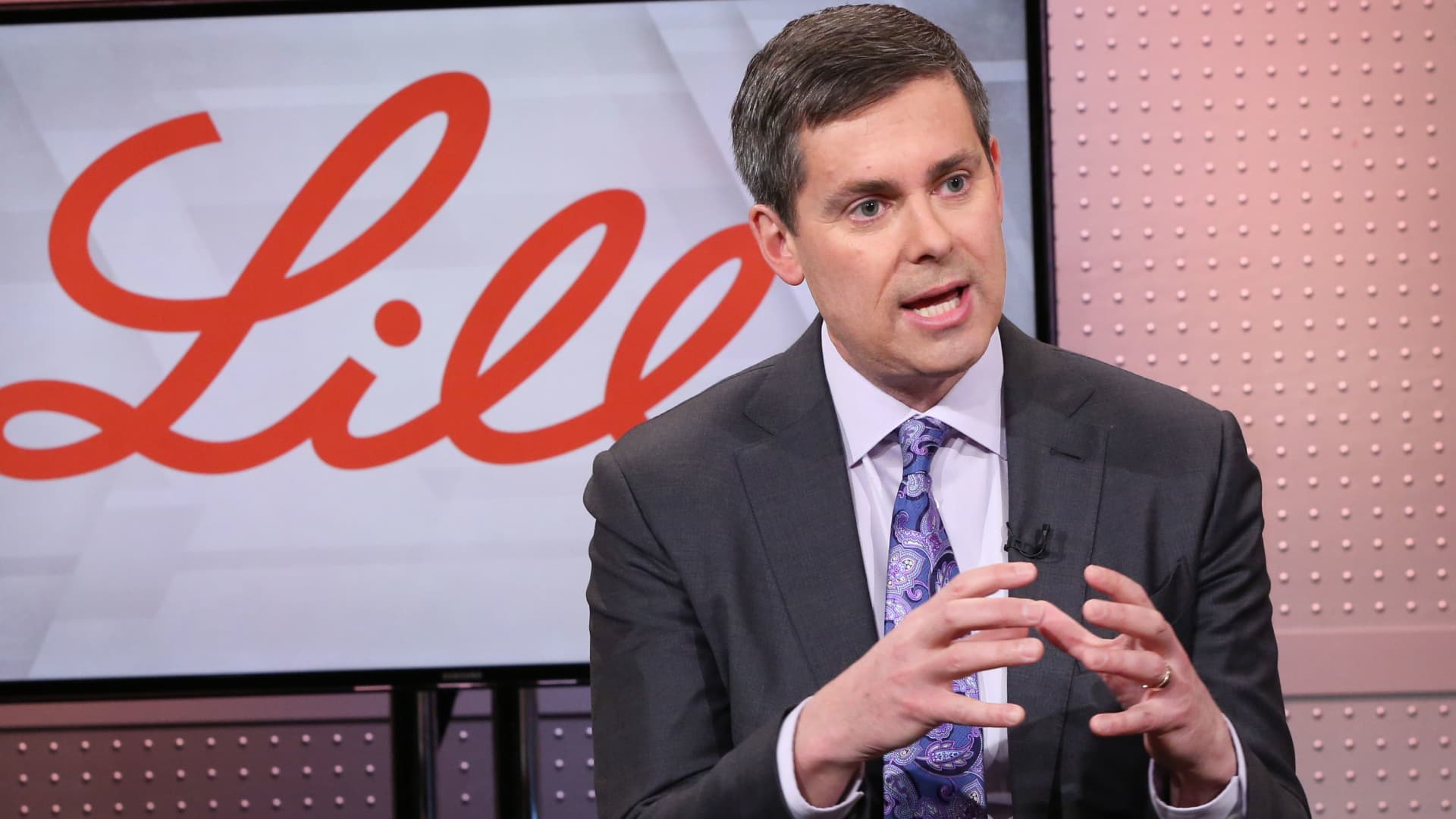**The Emergence of Eli Lilly’s Pioneering Weight Loss Drug and Its Impact on the Pharmaceutical Industry**
Eli Lilly has introduced a groundbreaking weight loss medication, Zepbound, available through its new website, which includes telehealth prescriptions and direct home delivery. While this initiative is the first of its kind for a major drug company, it may not entirely revolutionize the pharmaceutical industry, as anticipated by some experts. However, it could prompt other pharmaceutical companies to adopt similar direct-to-consumer models, thereby influencing the complex systems involved in drug distribution, pricing, and prescribing in the United States.
**Implications of Eli Lilly’s Direct-to-Consumer Model**
The introduction of LillyDirect, Eli Lilly’s direct-to-consumer platform, aims to enhance patient access to medications for chronic diseases, including the increasingly popular weight loss drugs. These medications have experienced a surge in demand, but have been hampered by supply constraints, counterfeit versions, and lengthy waiting periods for consultations with obesity medicine specialists. Eli Lilly intends to address these challenges through its innovative approach, creating new opportunities in the pharmaceutical landscape.
**Evaluating the Disruption Potential of LillyDirect**
While Eli Lilly’s direct-to-consumer platform streamlines the process of obtaining prescriptions and medications, it may not pose a significant threat to the traditional drug distribution system, which incorporates various entities such as manufacturers, wholesalers, pharmacies, and pharmacy benefit managers (PBMs). The platform connects patients with telehealth providers who can prescribe FDA-approved medications, facilitating direct delivery to patients’ homes. Additionally, patients can avail themselves of Eli Lilly’s savings-card programs, which provide transparent pricing and may challenge the practices of PBMs.
**The Potential for Industry-wide Adoption**
In light of Eli Lilly’s pioneering initiative, other pharmaceutical companies might be compelled to explore direct-to-consumer pharmacy models, particularly for high-selling drugs. This approach could offer several advantages, but may also present unique challenges and complexities that need to be carefully navigated.
**Navigating the Future Landscape**
With lawmakers focusing on drug supply chain middlemen and initiatives aimed at reining in medication prices, the pharmaceutical industry is undergoing substantial scrutiny and transformation. It is essential for companies to adapt to evolving regulatory landscapes, consumer demands, and industry trends.
In the ever-evolving landscape of the pharmaceutical industry, the traditional model of drug supply chain is undergoing significant transformation. As more focus is placed on smaller, more specialized drugs catering to complex, chronic, or rare medical conditions, there is a fundamental shift in the approach taken by drugmakers and health-care giants. This transformation is profoundly impacting the way drugs are priced, distributed, and administered.
**Direct-to-Consumer Approach: A Game-Changer**
One of the prominent shifts that have been witnessed is the adoption of a direct-to-consumer approach by drugmakers. This approach not only challenges the traditional drug supply chain but also adds pressure on it. Companies like CVS Health and Cigna have announced plans to revamp their business models for pricing prescription drugs, drawing inspiration from billionaire Mark Cuban’s direct-to-consumer pharmacy – Cost Plus Drugs.
**Simplifying Drug Pricing Model**
The move by CVS Health to adopt a model similar to Mark Cuban’s venture and revolutionize the pricing of prescription drugs signifies a crucial step towards simplifying the drug pricing model. With the aim of driving down the price of medicines, Cost Plus Drugs follows a strategy of selling drugs at a set 15% markup over their cost, along with pharmacy fees. This innovative approach is causing ripples in the broader health-care industry.
**Shakeup in the Health-Care Industry**
The ripple effect of these transformations is evident through the blow suffered by CVS when Blue Shield of California, a major health insurer, announced that it would discontinue using CVS as its Pharmacy Benefit Manager (PBM). Instead, it forged partnerships with other businesses, including Cuban’s firm and Amazon Pharmacy. This indicates a significant shift in the dynamics of the traditional drug supply chain, with direct-to-consumer pharmacies and alternative distribution channels gaining prominence.
**Embracing Specialized Training**
Moreover, as the demand for specialized drugs increases, the requirement for specialized training for drug administration also rises. Some drugs necessitate specialized training for their administration, such as injecting or infusing therapies into a patient’s vein through an IV. This underscores the evolving landscape of drug administration, wherein healthcare professionals need to equip themselves with the necessary expertise to cater to the specific requirements of these specialized drugs.
**Conclusion**
The pharmaceutical industry is witnessing a paradigm shift, with a pronounced focus on smaller, more specialized drugs for complex, chronic, or rare medical conditions. The emergence of a direct-to-consumer approach, alongside the restructuring of drug pricing models by industry giants, signifies a significant departure from the traditional drug supply chain. As companies aim to simplify the drug pricing model and drive down the cost of medicines, the industry is undergoing a transformative phase. This evolving landscape not only underscores the need for specialized training in drug administration but also signifies a fundamental shift in the way drugs are distributed, priced, and administered.
In conclusion, the pharmaceutical landscape is experiencing a revolutionary wave, and the implications of the changing dynamics of the drug supply chain are substantial.


